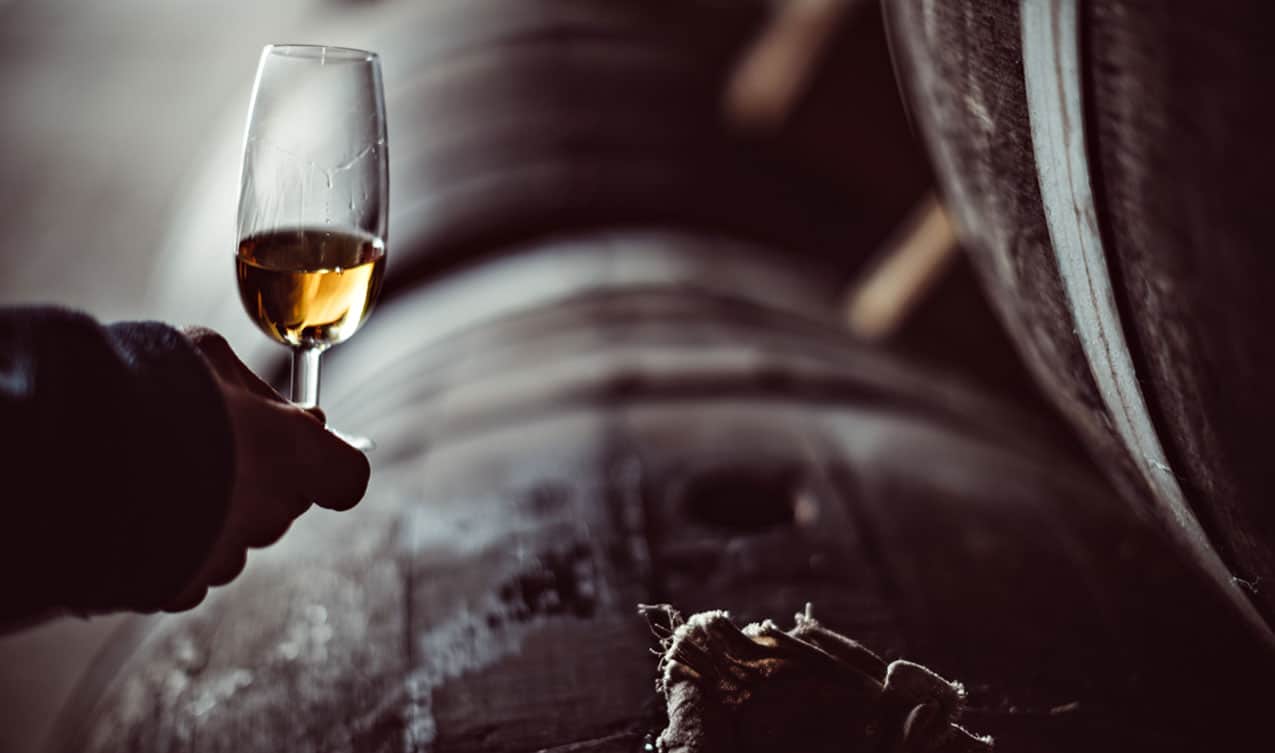
Cognac has benefited from carefully regulated and controlled production methods, alongside scientific and technical support for over 125 years. Discover what makes Cognac exceptional : its outstanding terroir, carefully controlled processes, and stringent requirements.
Due to the proximity of the ocean, rain can fall at any time of year, so drought conditions are rare and the vines receive a regular water supply.
Influenced by the region’s temperate, oceanic climate and high-yield, late-ripening grape varieties, this terroir produces elegant, wines with high acidity – the perfect raw material for producing outstanding eaux-de-vie. High acidity helps preserve the wine until distillation without adding sulfites, while low alcohol results in more concentrated aromas.
To remember
-
This terroir is divided into six “crus” or growing areas, with different soil and subsoil that influence the character of the Cognac they produce.
Around this time, stills were redesigned and Cognac was enhanced by aging in oak vessels.
Very early on, terroir and expertise were perceived as a shared heritage to value and transmit from one generation to the next.
The Cognac GI is defined and protected by rigorously updated specifications, guaranteeing its origin and authenticity. Human expertise is involved in all stages of production. The quality, traceability, and authenticity of each bottle is thus guaranteed (wine declarations, monitoring aging categories, sealed vintages, etc.). Supported by research at the BNIC “Station Viticole”, production processes evolve, not only in the vineyards (resistant grape varieties, new equipment, adapting to climate change, etc.), achieving greater aromatic finesse, but also protecting consumer health and the environment. These are just some of the many reasons why Cognac continues to inspire renowned chefs and bartenders, and is appreciated for its incomparable quality in nearly 150 countries around the world.
Cognac comes from vines, primarily “Ugni Blanc”. This grape variety accounts for Cognac’s finesse and elegance, while the various production stages contribute to its aromatic richness.
The first stage, alcoholic fermentation, produces esters responsible for the development of floral and fruity aromas in new wine spirits. This is followed by double distillation, which preserves the fruity flavors and freshness of the wine. Once in barrel, the wine spirit will develop over time depending on the types of barrel used, and the aromas will gradually be expressed. Carefully monitored by the cellar master, the wine spirit is moved between dry and humid cellars, as well as new and used oak barrels.
The length of aging, together with the “cru” or growing area, will influence the rate of development of floral, fruity and oaky aromas. During aging, Cognac acquires more specific aromas: (e.g. almond, cherry, jasmine, oak, rancio, etc.).
A combination of terroir, expertise, carefully-controlled processes, and scientific and technical research blend together to create the unrivalled Cognac experience, appreciated around the world.
Terroir, know-hows and controlled process, scientific and technical research,
are all together ingredients that give cognacs their unique quality.






